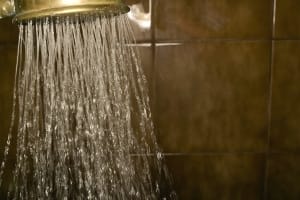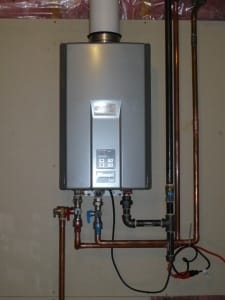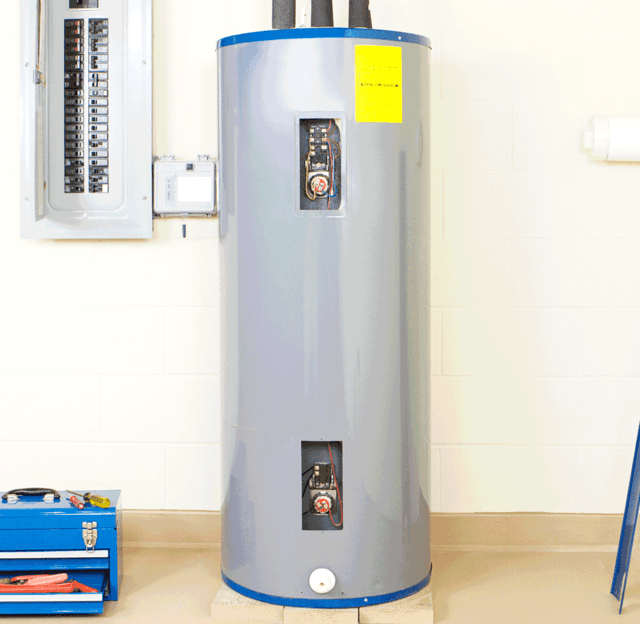Should you go Tankless? Or Opt for the Traditional Water Heaters?
Should you go Tankless? Or opt for the Traditional Water Heaters? The Raleigh water heater specialists at Poole’s Plumbing specialize in installation and servicing of your water heater....tank or no tank! With a wide selection of both models, can help educate you on that choice.
Continuing in our series on water heaters, we will walk through benefits, drawbacks, and other considerations when making the decision on a Traditional Water Heaters or Tankless. We will look at and list these out for each style water heater, in easy to read bullet points below:

Regardless of which works best for you, making the proper choice in water heaters can be one that helps you save money.
Pros and Cons of Traditional Water Heaters (Tank)
Pros:
- Lower initial cost - A traditional water heater installation can be half as much as a tankless water heater.
- Easy and inexpensive to replace - Fewer installation complications means less possibility of a problem.
Cons:
- Higher utility bill - Traditional units heat and reheat water at a pre-set temperature. Your water needs and water do not factor into this. This will increase your utility bill, especially during the winter months.
- Bigger and harder to place - They occupy more room and can’t be placed outside.
- Can run out of hot water - Have you ever been the last in line to get the shower after the rest of the family? If in a hurry...it's gonna be a cold one. This problem can be avoided by purchasing a larger tank.
- Shorter life - On average, traditional units last between 10-15 years. This means there’s more turnover and therefore you have to buy a traditional heater about twice as often as a tankless one.

Up to two to three gallons of hot water is accessible "on demand" with a tankless unit.
Pros and cons of Tankless Water Heaters
Pros:
- Saves money in the long run - According to energy.gov, “For homes that use 41 gallons or less of hot water daily, tankless water heaters can be 24-34 percent more energy efficient than conventional storage tank water heaters.”
- Doesn't take up much space - They are small and can be more easily installed in more places. In some cases, tankless units can even be installed outside on a wall.
- Longer Life - On average, a tankless model will last 20-plus years. In some cases, this is almost double the life of a traditional unit.
- Hot Water on Demand - Provides two to three gallons of hot water per minute on demand.
Cons:
- Higher Cost of Installation - Both the units and installation cost considerably more than the traditional units for the initial purchase and install.
- "Retrofitting" - Replacing a traditional water heater with a tankless system is known as "retrofitting." This is a bit more complicated than simply replacing a traditional with a traditional unit, or a tankless with a new tankless model. Thus, this will also factor into the installation cost increasing even further.

The tankless units are more compact and take up lesss space.
Other Considerations:
- Water heating accounts for about 20 percent of your home energy budget.
- A whole-house electric model costs $500-$700.
- A whole-house gas model costs $1,000-$2,000.
- Electric models are generally cheaper to install than gas.
- Natural gas is currently less expensive but expected to surpass electricity in price in the coming years.
- A standard bathtub holds about 35 gallons, soaking tubs hold between 45-80 gallons.
The Decision is Yours
The decision to "go tankless," or to "go traditional," when it comes to your selection in a water heater is all yours, but hopefully with some of the pros and cons here provided by us, your trusted Raleigh professional plumbers at Poole's Plumbing, your decision can be one a bit more educated and as always, we would be happy to assist not only in the installation but also in giving any final advice on last minute questions you may have when it comes replacement time.
For more information on and from the most trusted name in Raleigh water heater installation and repair, Poole's Plumbing, visit. poolesplumbing.com.






